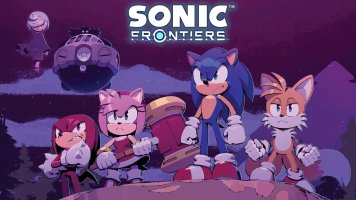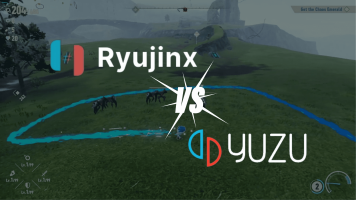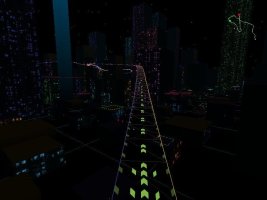During his epic 32-year run at the legendary Kyoto-based video game company, he was involved with designing iconic characters for games like Star Fox, F-Zero, and The Legend of Zelda: Majora's Mask, and later went on to direct a small number of popular 3DS titles like Steel Diver, Steel Diver: Sub Wars, and Tank Troopers. But, in 2022, he announced that he was making the difficult decision to leave the company that gave him his start to go independent, and eventually began working on a sci-fi ADV named Omega 6: The Triangle Stars for Nintendo Switch and PC.
This game is already out in Japan as we speak and is set to be released in the West sometime in 2025. It is based on Omega 6, a manga that he wrote shortly after he departed Nintendo, about a couple of bounty hunters named Thunder and Kyra on a quest to find mankind's next home. This manga is currently only available in French and Japanese (though Dark Horse Comics has previously announced it will also publish an English version in the future).
Recently, Imamura was kind enough to sit down and answer some of our questions about this exciting new project. He filled us in on why he had to leave Nintendo to embark on this latest chapter in his career and gave us some insight into its origins and design. This includes whether he originally envisioned the title as a cross-media project.
Omega 6: The Triangle Stars is being developed in collaboration with Happymeal and Pleocene, and was published by City Connection in Japan. Clear River Games, meanwhile, is handling its Western release
"At first, I only had manga in mind," Imamura tells us, in response to a question about whether the game was part of his original plans. "I was consulted about an adventure game project and felt that it would be a good match for the manga I created."
What's particularly fascinating about Imamura's latest career move is that it actually represents something of a full-circle moment for the artist. Prior to joining Nintendo, he had always wanted to be a mangaka and had even reportedly shown Shigeru Miyamoto a manga that he had created when initially interviewing for a job at Nintendo in 1989. Growing up, some of his greatest heroes were artists like Osamu Tezuka, Akira Toriyama, Katsuhiro Otomo, and Mobius, and he always believed manga to be a "wonderful" profession due to its combination of "storytelling, composition, and character design."
It was only on account of the Famicom boom and his love of playing titles like Zanac, Metroid, and Star Luster, that he began to consider a job in the video game industry. That, and his feelings that he would have an uphill struggle to make it at as a successful cartoonist.
As he recalls, "I jumped into this industry because the time when I was looking for a job was a very big NES boom and I loved video games. The chances of success at the time as a cartoonist were also very slim."
Initially, Imamura believed that he might be able to provide the art for the packaging for new Famicom titles, but he instead eventually found himself being an important contributor at Nintendo to SNES titles like F-Zero, Star Fox, The Legend of Zelda: A Link to the Past, and Stunt Race FX, before graduating to the role of an art director on games like The Legend of Zelda: Majora's Mask and Star Fox 64. During his time at the company, he was also at one point a supervisor of third-party titles, like Rare's Star Fox Adventures and Amusement Vision's F-Zero GX, and got the chance to lead a handful of smaller, more experimental projects.
Speaking to us, however, he made it clear that he believes working on a game like Omega 6 would never have been on the cards at his former employer by the time he left, precisely due to the challenges of launching a new IP in the current entertainment climate.
"I think it would have been impossible to make this game at Nintendo!" he tells us. "I think this game was made possible only because we became independent [...] New IPs are really struggling in all entertainment genres. We were lucky to be able to launch Omega 6 in such a situation!"
This story unfolds through an ADV-style interface, with players being given a 2D view of the world around them before being offered the ability to select an action from a list of available verbs (move, talk, inspect, etc). This kind of setup will inevitably be familiar to anyone who has played ADV-style games in the past (like Famicom Detective Club or Snatcher). However, the game also introduces the presence of a slightly unconventional combat system, which is modelled after the concept of rock, paper, scissors (or "Janken" as it is known in Japan). In battles, players will take it in turns with an enemy to select one of three icons representing these different objects, with an additional fourth icon being available to access the inventory.
As one of our closing questions, we asked Imamura how the English localization is coming along and were told that more news would be available at Gamescom later this month (where he will also be making an appearance).
He also implied that he was excited about the potential of a follow-up, telling us that he and the team "still had a lot of things we wanted to do" with the original and they "would like to make the next one."





